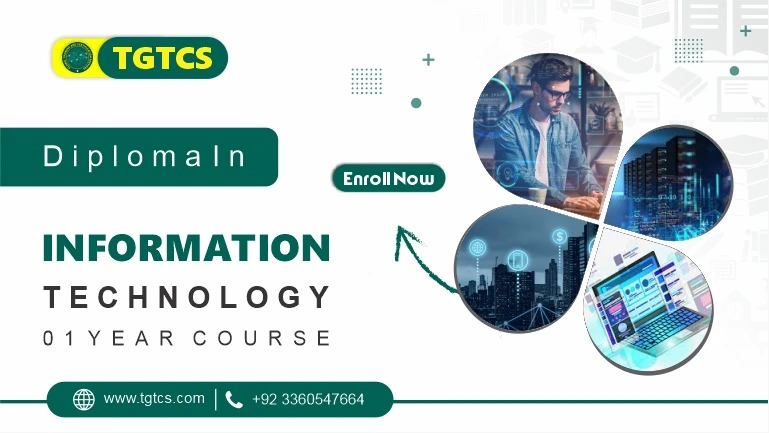ICTQual Level 5 Diploma in Telecom Engineering 240 Credits-Two Years
The ICTQual Level 5 Diploma in Telecom Engineering (240 Credits – Two Years) is your gateway to becoming an expert in the telecom engineering field. This comprehensive two-year program equips students with the essential skills, technical knowledge, and practical experience required to thrive in the dynamic world of telecom infrastructure and services.
The ICTQual Level 5 Diploma in Telecom Engineering is an advanced qualification designed to provide students with in-depth knowledge and hands-on experience in telecom technologies. The course covers everything from network design, telecommunications systems, and fiber optics to wireless technologies, network management, and security. Whether you’re just starting your journey in telecom engineering or seeking to upgrade your existing skills, this diploma offers a robust foundation for your career.
The ICTQual Level 5 Diploma in Telecom Engineering offers a robust education in telecom technologies, preparing you for a wide array of roles in one of the most dynamic industries. Whether you’re looking to enter the workforce or further your studies, this qualification is an excellent investment in your future.
The Global Training and Certification Services (TGTCS) is Directly Approved Training Centre of ICTQual
The ICTQual Level 5 Diploma in Telecom Engineering is a comprehensive two-year program designed to equip students with the essential knowledge and practical skills required to excel in the telecommunications industry. Spanning 240 credits, this course covers a wide range of critical topics, including network design, telecom systems, fiber optics, wireless communications, cloud technologies, and network security. Through a combination of theoretical learning and hands-on experience, students gain in-depth insights into the latest technologies, including 5G, mobile communication systems, and satellite communications.
Graduates of this diploma are well-prepared for careers in telecom engineering, with roles such as network engineers, telecom project managers, and fiber optic technicians. The program also provides opportunities for further academic advancement and industry-recognized certifications, enhancing employability in a fast-evolving global market.
Whether you’re starting a career in telecom engineering or advancing your existing skills, this qualification offers a solid foundation and exciting career prospects in a rapidly growing industry.
Mandatory Units
The Units of Level 5 Diploma in Telecom Engineering 240 Credits-Two Years are as :
Year 1 (120 Credits)
- Introduction to Telecommunications Engineering
- Mathematics for Telecommunications
- Electrical Circuit Analysis
- Digital Logic and Systems
- Signals and Systems
- Principles of Communication Systems
- Data Communication and Networking Fundamentals
- Electronics for Telecommunications
- Antennas and Wave Propagation Basics
- Technical Drawing and CAD for Telecom Systems
- Health and Safety in Telecom Installations
- Professional Communication Skills
Year 2 (120 Credits)
- Advanced Communication Systems
- Wireless and Mobile Communication
- Optical Fiber Communication
- Microwave Engineering
- Internet of Things (IoT) in Telecommunications
- Network Design and Management
- Telecom Switching Systems and Networks
- Satellite Communication Systems
- Advanced Signal Processing
- Telecom Project Management
- Emerging Trends in 5G and Beyond
- Capstone Project in Telecommunications
Below are the learning outcomes for each study unit in the ICTQual Level 5 Diploma in Telecom Engineering program:
Year 1 (120 Credits)
- Introduction to Telecommunications Networks
- Understand the fundamental principles of telecommunications networks.
- Identify different types of telecom infrastructures, including wired, wireless, and optical networks.
- Analyze the role of telecom networks in global communication systems.
- Telecommunication Systems and Standards
- Comprehend global telecom standards and protocols (e.g., GSM, CDMA, LTE).
- Evaluate the importance of industry standards in ensuring interoperability between telecom systems.
- Demonstrate knowledge of the regulatory environment governing telecom systems.
- Digital Communication Systems
- Apply digital signal processing and modulation techniques in telecommunications.
- Analyze the operation and applications of digital communication systems for data transmission.
- Understand digital transmission technologies and their practical use.
- Network Design and Implementation
- Design and configure telecommunication networks based on industry standards.
- Implement routing protocols, bandwidth management, and network infrastructure components.
- Assess network performance and apply optimization techniques.
- Telecom Equipment and Devices
- Identify and understand the functions of telecom devices such as switches, routers, transmitters, and receivers.
- Analyze how telecom equipment integrates into network systems.
- Develop practical skills in installing and configuring telecom devices.
- Fiber Optic Communication Systems
- Understand the principles and applications of fiber optics technology in telecom networks.
- Evaluate the advantages of fiber optic communication, focusing on speed and data integrity.
- Design and implement fiber optic systems for telecom applications.
- Wireless Communication Systems
- Understand the principles of wireless communication, including cellular, satellite, and Wi-Fi systems.
- Analyze the role of wireless networks in modern telecommunications.
- Apply wireless protocols in network design and optimization.
- Telecom Network Security
- Identify common security threats to telecom networks and the importance of safeguarding telecom infrastructure.
- Implement security protocols such as encryption, firewalls, and intrusion detection systems.
- Evaluate telecom network vulnerabilities and propose appropriate security solutions.
- Voice and Data Networks
- Comprehend the integration of voice and data services within telecom networks.
- Analyze technologies like VoIP and multimedia transmission in telecom systems.
- Design and implement systems to support both voice and data traffic.
- Project Management in Telecom Engineering
- Apply project management principles to telecom engineering projects, including planning, execution, and monitoring.
- Develop skills in resource management, budgeting, and scheduling for telecom projects.
- Communicate project goals and results to stakeholders.
Year 2 (120 Credits)
- Advanced Network Design and Optimization
- Design advanced telecom networks, emphasizing scalability and efficiency.
- Optimize network performance, managing congestion and reducing latency.
- Utilize modern network architecture and technologies to enhance design quality.
- Radio Frequency (RF) Systems
- Understand the principles of radio frequency technology, including signal propagation and interference.
- Analyze RF systems and their applications in wireless telecom networks.
- Implement RF solutions to optimize wireless network performance.
- Telecom System Installation and Maintenance
- Gain hands-on experience in installing and maintaining telecom infrastructure.
- Troubleshoot common issues in telecom systems, including hardware and software malfunctions.
- Learn best practices in system maintenance to ensure long-term reliability.
- Advanced Telecom Protocols
- Understand and apply advanced telecom protocols such as MPLS, VPNs, and emerging 5G standards.
- Analyze how different protocols affect network performance and security.
- Implement and manage advanced protocols in telecom networks.
- Satellite Communication Systems
- Understand the principles behind satellite communication, including satellite orbits and link budgets.
- Analyze the role of satellite systems in global telecom infrastructure.
- Design and deploy satellite communication solutions for large-scale applications.
- Mobile Network Technologies
- Explore mobile network technologies from 2G to 5G, and understand their evolution and impact on the telecom industry.
- Apply knowledge of mobile technologies in network planning, design, and implementation.
- Understand the challenges related to mobile network performance, coverage, and capacity.
- Telecom Billing and Customer Management Systems
- Comprehend the principles of telecom billing systems and their integration with customer management frameworks.
- Analyze CRM systems for handling customer data and interactions.
- Understand the financial and operational aspects of running a telecom business.
- Telecom Policy and Regulation
- Understand global regulatory frameworks and their impact on telecom operations.
- Evaluate the role of government bodies and industry standards in telecom service delivery.
- Apply telecom laws and policies to real-world scenarios.
- Telecom System Fault Diagnosis and Troubleshooting
- Develop skills in diagnosing faults in telecom systems and networks.
- Apply troubleshooting techniques to resolve issues in hardware, software, and network configurations.
- Implement corrective actions to restore network functionality.
- Telecom Engineering Capstone Project
- Apply knowledge and skills to a practical telecom engineering project.
- Conduct independent research or design solutions to real-world telecom challenges.
- Present and communicate findings clearly to both technical and non-technical audiences.
- 5G Technology and Applications
- Understand the architecture, standards, and components of 5G technology.
- Analyze the applications of 5G in various sectors such as healthcare, automotive, and smart cities.
- Evaluate the impact of 5G on existing telecom networks and its future potential.
- Telecom Cloud Computing
- Understand cloud-based solutions in the telecom industry, including network function virtualization (NFV) and software-defined networking (SDN).
- Analyze how telecom companies use cloud technologies to optimize networks.
- Design and implement cloud-based telecom infrastructure for improved service delivery.
- Telecom Infrastructure Planning and Sustainability
- Learn the planning, design, and construction of sustainable telecom infrastructures.
- Evaluate the environmental impact of telecom systems and suggest energy-efficient solutions.
- Implement green technologies to ensure sustainable telecom operations.
- Telecom Business Management and Strategy
- Understand business models, financial management, and strategic planning in telecom companies.
- Analyze market trends and customer needs to develop effective telecom strategies.
- Apply business management concepts to optimize telecom operations and profitability.
- Comprehensive Knowledge in Telecom Engineering
- This course provides in-depth knowledge of key telecom engineering concepts, including network design, telecom standards, wireless communication, and network security, which equips you with the technical expertise required for various roles in the telecom industry.
- Hands-On Learning
- Through practical modules like Telecom System Installation and Maintenance, Fiber Optic Communication Systems, and Mobile Network Technologies, you will gain valuable hands-on experience, making you industry-ready upon graduation.
- Exposure to Cutting-Edge Technologies
- The course covers emerging technologies such as 5G, cloud computing, and advanced telecom protocols, ensuring you stay up to date with the latest industry trends and developments.
- Enhanced Career Opportunities
- Graduates of the program will be well-prepared for roles such as Telecom Engineer, Network Designer, Telecom Security Specialist, and Mobile Network Planner, offering you a wide range of career opportunities in the telecom and communications sectors.
- Industry-Relevant Skills
- The course is designed to teach skills that are directly applicable to real-world telecom projects, ensuring that you are well-prepared to solve industry challenges and make meaningful contributions to telecom organizations.
- Understanding Global Telecom Standards
- By studying global telecom standards and protocols like GSM, CDMA, LTE, and the evolving 5G standards, you will gain a strong understanding of the regulatory and operational frameworks that govern telecom systems worldwide.
- Project Management Expertise
- The Project Management in Telecom Engineering module helps you develop the ability to manage complex telecom projects, including resource management, budgeting, and execution. This experience is valuable for roles that require both technical and managerial skills.
- Increased Earning Potential
- With a Level 5 diploma, you are qualified for senior positions in telecom engineering, which can lead to higher salaries and greater opportunities for career advancement in a growing industry.
- Global Career Mobility
- The demand for skilled telecom professionals is global. With this diploma, you can explore job opportunities in various regions, including Europe, North America, and Asia, where telecom skills are highly sought after.
- Preparation for Further Studies and Certifications
- The program prepares you for additional industry certifications (e.g., CCNA, Cisco Certified Network Associate) and academic pursuits, allowing you to further specialize and expand your expertise in telecom engineering.
- Business and Entrepreneurial Insights
- The Telecom Business Management and Strategy module equips you with the knowledge to start your own telecom business or offer consultancy services, offering opportunities for those with an entrepreneurial spirit.
- Sustainability and Environmental Awareness
- The course covers sustainable telecom infrastructure planning and green technologies, enabling you to implement environmentally responsible solutions in the telecom industry.
By completing this course, you will be prepared for a wide array of career paths in telecom engineering, from technical roles to management positions, while also gaining expertise in emerging technologies that will shape the future of global communications.
The ICTQual Level 5 Diploma in Telecom Engineering is designed for individuals who are passionate about telecommunications and eager to pursue a successful career in the rapidly evolving telecom industry. The ideal learner for this course typically possesses the following attributes:
- Interest in Technology and Telecommunications
- The ideal learner has a strong interest in the workings of telecommunications networks, digital communication systems, and emerging technologies like 5G and cloud computing. They enjoy exploring new tech developments and staying updated on industry advancements.
- Strong Analytical and Problem-Solving Skills
- Telecom engineering often involves troubleshooting complex systems, designing networks, and solving technical problems. Learners should be comfortable with critical thinking, problem-solving, and applying theoretical knowledge to real-world scenarios.
- Technical Mindset and Aptitude
- A basic understanding of IT, networking, and computer systems is beneficial. The ideal learner enjoys working with hardware and software components, analyzing network performance, and configuring telecom systems.
- Career-Oriented and Goal-Driven
- The course is suited for individuals who are looking to advance their careers in the telecom sector. Ideal learners are motivated by the prospect of securing roles such as telecom engineer, network architect, or mobile network planner, and are committed to developing the skills necessary for these positions.
- Ability to Work Independently and Collaboratively
- The program involves both individual and group projects. The ideal learner is self-motivated and able to work independently, while also capable of collaborating effectively with others to complete team-based assignments.
- Previous Background in Technology or Engineering (Optional)
- While not mandatory, learners who have prior knowledge or experience in IT, networking, or engineering are likely to find the course content more accessible. However, the course is also suitable for those with a general interest in telecom, as it provides foundational knowledge for newcomers.
- Aspiring to Pursue Professional Certifications
- The ideal learner is someone who is keen to pursue industry-recognized certifications (e.g., Cisco Certified Network Associate, CompTIA Network+) to further enhance their qualifications and career prospects in telecom engineering.
- Curiosity About Future Technologies
- With an emphasis on future-focused technologies like 5G, satellite communications, and cloud-based telecom solutions, the ideal learner is curious about how emerging technologies will transform the telecom industry and is eager to be part of this transformation.
- Prepared for Global Career Opportunities
- The ideal learner is interested in working in the global telecom industry and is open to exploring career opportunities in various international markets, including Europe, North America, and Asia, where there is high demand for skilled telecom engineers.
- Desire to Take on Leadership Roles
- This course is also ideal for those looking to take on leadership or project management roles in the telecom industry, as it covers project management principles and industry strategies that will be useful in senior positions.
In summary, the ideal learner for the ICTQual Level 5 Diploma in Telecom Engineering is someone with a strong interest in technology and telecom systems, who possesses problem-solving skills, a passion for emerging technologies, and is committed to advancing their career in the telecom field. Whether you’re an aspiring telecom professional or an industry veteran seeking to upgrade your skills, this course provides the knowledge and hands-on experience necessary for success in the field.
Upon successful completion of the ICTQual Level 5 Diploma in Telecom Engineering, graduates are well-equipped to pursue a variety of rewarding career paths in the telecommunications industry. The comprehensive knowledge and hands-on skills gained during the course open the door to roles in telecom engineering, network management, and system implementation. Here are some of the key career progression options for graduates:
- Telecom Engineer
Graduates can take on the role of a telecom engineer, responsible for designing, installing, and maintaining telecom networks. They will possess the skills needed to manage infrastructure projects, optimize telecom systems, and troubleshoot network issues effectively. - Network Administrator
As a network administrator, graduates will manage and maintain the functionality of telecom systems and network infrastructures. They will ensure seamless network operations by overseeing network performance, traffic, and security, as well as resolving technical issues. - Systems Engineer
Graduates can work as systems engineers, integrating and optimizing telecom hardware and software systems to provide efficient communication services. Their responsibilities will include configuring and maintaining telecom systems for optimal performance. - Wireless Network Specialist
With the growing demand for wireless technologies, graduates can specialize in wireless networks, including Wi-Fi, 4G/5G, and satellite communications. They will be responsible for designing, implementing, and optimizing wireless network solutions to meet current and future telecom needs. - Network Security Specialist
Graduates can advance to roles in network security, focusing on protecting telecom infrastructures from cyber threats. As network security specialists, they will design security protocols, assess risks, and implement measures to safeguard telecom systems against vulnerabilities. - Telecom Project Manager
Graduates can move into management positions, such as telecom project managers, overseeing the execution of large-scale telecom projects. In this role, they will manage teams, budgets, timelines, and resources, ensuring the successful implementation and delivery of telecom services and infrastructure. - Telecom Consultant
With their deep understanding of telecom systems, graduates can become telecom consultants, providing expert advice on infrastructure, network design, and system optimization. They will work with organizations to improve and tailor their telecom systems to meet business and operational requirements. - Field Service Engineer
Graduates can pursue a career as a field service engineer, working on-site to install, maintain, and repair telecom equipment and systems. They will perform troubleshooting tasks to ensure the continuous and efficient operation of telecom networks in diverse environments. - Technical Support Engineer
In technical support roles, graduates can assist customers with telecom products and services. They will address issues related to network performance, installation, and configuration, leveraging their technical expertise to resolve customer problems. - Telecom Sales Engineer
For graduates with strong technical and interpersonal skills, telecom sales engineering offers the chance to promote telecom products and services. They will advise businesses on the best telecom solutions, utilizing their technical knowledge to support sales and client relations. - Network Optimization Specialist
Graduates can focus on optimizing telecom networks to enhance performance, reliability, and scalability. They will analyze network data, identify potential bottlenecks, and implement strategies to improve network efficiency and capacity. - Infrastructure Planner
In infrastructure planning roles, graduates will design and develop telecom systems that are scalable, cost-effective, and aligned with business goals. They will plan for the expansion of telecom networks, especially in emerging technologies like 5G, ensuring their infrastructure meets both current and future demands.
With a solid foundation in telecom engineering, graduates are well-positioned to pursue diverse roles in the telecom industry and contribute to the advancement of modern communication networks.
Course Overview
Course Level
Level 5
Course Units
24 Mandatory Units
Duration
Two year






